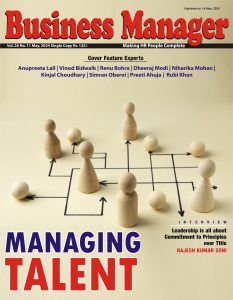The important thing in any organisation is to be conscious of what it is about. This consciousness has to be positive and well understood at all levels. The articulation of what it is about? How it got where it is? and where it will go from there? are important. To create an organisation-wide census purpose, this has to be documented in its fundamentals, lucid in its enunciation, and actionable in its expression. Comparatively, few organisations have been able to achieve this, and it is often left to key figures to initiate and expound on it. The trouble with this kind of approach is that it may vary from one organisation to another in the same position. Handing over and taking over is not always a systematic process, and even in organisations where it is observed, very often the expression is on a small sheet of paper that simply states that somebody has taken over from somebody else and taken charge of the position. This may be a necessary component of handing over and taking over. But it is not necessarily enough. The process of transition is always delicate, and many incumbents are known to superimpose their so-called insights and understanding of the situation.
In organisational management, this is a danger that very often causes grief in the functioning of processes.
What is true at the organisational level is also true at the governance level. The legislaturein any system of governance is power centre, in a country such as India this institution is under formation in some part of the country or another, throughout the year.It takes away the necessary attention from certain as aspects of governance and election related ‘events’ take a disproportionate share of attention and time. A lot of energy is spent in figuring out who is going into power and who is coming out. This occupies so much attention that the content of what the one who has got power, is actually doing, almost gets relegated to a relatively inconspicuous position.
Because of celebrity media attention, attention is focused on major personality shifts in the power syndrome of parties, allegations of wrongdoing, or more. The list can be updated. There seems to be little difference between what ‘Party A’ seeks to do and what ‘Party B’ seeks to do. Names may change but the broad format and trends of happening remains the same. This cannot be considered healthy.
The entire assumption that political parties have a system of fully verifiable, financing of electoral activities and that their functioning/positioning in the legislature or the parliament would be based on ideological considerations is yet to fully concretise.If there are no differences between the parties A, B, and C on issues of how to manage investment, taxation, social welfare, education, or local self-government,etc. electoral battles lose their raison d’être. In a manner of speaking, it should be possible to do a simple Metrix with ‘Y’ axis having the name of Political Parties and the ‘X’ axis having various activities agovernment would be planning and make a comparative statement.
Take the case of the current elections conducted in Karnataka and Manipur. It should have been possible to create a metric showing what one political party had to say about being ideologically healthy as distinguished from another political party. On the basis of the data available this would be a very difficult exercise to complete.It will be still more difficult for the elections in states such as Rajasthan, Madhya Pradesh, and elsewhere where electoral processes are to ensue. There is competitive wooing in terms of freebies and surcharges, talk about equity, and more but the ideological divide is in-conspicuous. If there is very little to ideologically distinguish one party from another in terms of its ‘conceptual’ basis, then even the very purpose of ‘party politics’ stands open to re-thinking.The electoral results would have to be understood and explained in terms of ‘power’ and ‘patronage’. This leads to the situation one is currently facing.
The current situation is one group of parties taking care of themselves and their own versus another group of parties wanting to take care of themselves and their own. There was a time in this country’s electoral policy where certain parties took a position well to the left of a given political ideology and talked of state control. There was another set of political parties that talked about economics and encouraged private investment for national growth. That ideology device is no longer apparent. Political parties exist with such ideologies, but they stand marginalised and try to justify their existence through alliances and coalitions. This is a national loss because they put a thrust on the parties and governance in a manner that needs thought.
Ideological fuzziness between political parties encourages personality-based electoral politics and thoughts. Such personalization of the decision-making process creates corrosive clashes. On other timesit results in the shifting of one group of people from one political party to another, which makes very little sense in terms of ideology.
This process itself is worth serious thought. It takes away from the basic purpose of a people’s representation system, which should work on ideologies and produce their appeal based on certain ideological parameters.
Personalities are one of the basic dimension of politicking. However, personalities need to subsume their role to certain ideological thrust if the whole process of party operated democracy is to move from strength to strength.
Stay connected with us on social media platform for instant update click here to join our LinkedIn, Twitter & Facebook




























